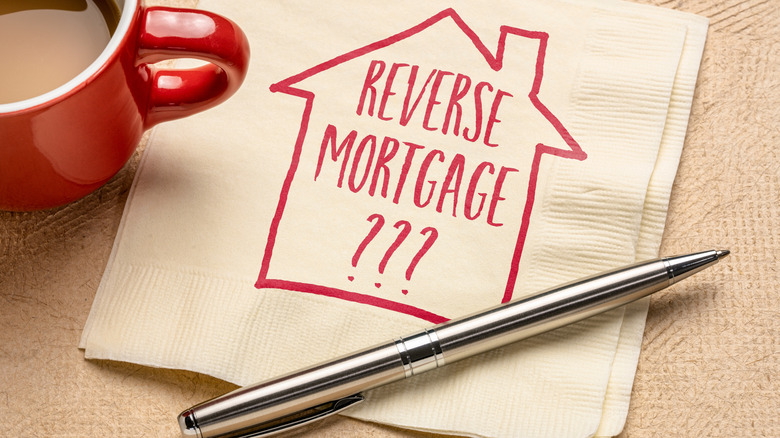How Long Can A Retiree Stay In Their Home With A Reverse Mortgage? Here's What To Know
Soaring home prices have left many homeowners sitting on a significant amount of home equity. Between 2020 and 2025, alone, the average amount of home equity in the U.S. has jumped a whopping 142% and if you've owned your home for decades, the increase could be far greater. Yet despite the increase in net worth, the rising cost of living has many people, particularly retirees, finding it difficult to cover everyday expenses. While selling your home to access the funds may be an option, it's not a good one if you hope to stay in your home throughout retirement. You could take out a home equity loan, but covering the monthly payments could be tough on a fixed income. If you're 62 or older, you may want to consider a reverse mortgage. While it's not right for everyone, it may be a smart option if you want to remain in your home throughout your golden years.
Reverse mortgages allow you to borrow money against the value of your house. You can receive the money through a line of credit, monthly payments, or a lump sum payout, which you can use to cover your living expenses, and you don't have to pay back the loan as long as you're living in the home. Unlike a traditional loan, there is no specific time limit for the loan to be repaid — it gets paid back when the borrower either moves out or passes away, and (typically) the home is sold. This means that you can continue to live in your house indefinitely — even if the amount you borrow ends up exceeding the value of the home.
A reverse mortgage could default if you don't keep up with your expenses
While a reverse mortgage may make sense if your goal is to stay in your home, there are some important caveats you need to be aware of to ensure you're actually able to do so. For instance, there are various costs and rules involved with having a reverse mortgage, which, if not kept up with, could cause your loan to default. If this happens, you will have to pay back the loan, which could mean having to sell your home. One condition of a reverse mortgage is that you are required to continue paying the expenses associated with the home. These include property taxes, homeowners' insurance, and general maintenance necessary to keep the home in good condition.
You are also required to continue using the house as your primary residence. If you are away for more than a certain period of time, it could cause a problem. For example, if you leave the home for more than six months for a non-medical reason, or you are gone for more than 12 months at a healthcare facility, such as a rehab center or assisted living, the home will no longer be considered your primary residence, which violates the mortgage terms (this doesn't apply if there's a co-borrower — a co-owner who is at least 62 — remaining in the home). If you fail to follow the rules or keep up with the necessary costs, it could cause your loan to default, forcing you to pay back the loan in full and jeopardizing your plans to remain in your home indefinitely.

